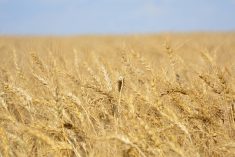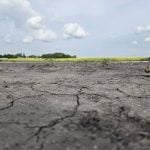SASKATOON – Two University of Regina professors are using the latest scientific tools against an age-old problem for prairie farmers.
For five years, biology professor William Chapco and biochemist Rod Kelln have been looking for ways to kill grass-hoppers by genetics.
They tried “anything that compromises the health of the insect,” said Chapco. That includes manipulating genes to make grasshoppers molt too early or to cause their naturally occurring bacteria to kill them.
“We haven’t had much luck there,” said Chapco.
But they had promising results from implanting foreign genes into grasshopper DNA.
Read Also

AI expected to make itself felt in food systems
Artificial intelligence is already transforming the food we eat, how farmers produce it and how it reaches the consumer, experts say
First, the pair found a bacteria that occurs naturally in the intestines of many different species of grasshopper. Then, they experimented with transplanting foreign genes in the bacteria’s DNA.
They introduced genes from a scorpion and a spider mite to the bacteria, then fed the bacteria to the grasshoppers. Many died or were paralyzed.
You are what you eat
Because grasshoppers are cannibals, the bacteria are passed from one grasshopper to another, continuing the process.
An experiment carried out by Chapco and Kelln last December was successful, but a follow-up test didn’t have as high a kill rate. They solved the problem and are now trying a third run. If current tests go as well as the first, Chapco said they will contact Agriculture Canada and set up field trials.
The potential for biological control methods could be good news for the environment, says a professor at King’s College in Edmonton.
“In general, if there are ways in which we can reduce the amount of chemicals used,” said Harry Spaling, “that can be looked at favorably.”
But Spaling has some concerns that genetic manipulation might affect other species.
“That’s certainly a concern,” said Chapco.
He said at this stage of the research, he does not know if altering the grasshopper bacteria will affect other species.
“It will require extensive testing to be sure.”















